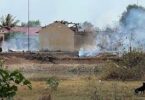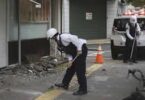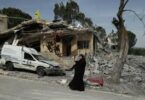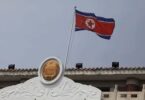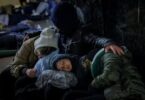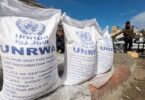BEIRUT (AFP): An ambush on a bus in remote eastern Syria left at least 15 pro-government fighters dead on Monday, the Syrian Observatory for Human Rights said.
The war monitoring group said it was not immediately clear if those killed were from the regular army or allied militia.
The attack took place on the road linking the city of Raqa, which used to be a major Daesh hub and is under Kurdish control, to the government-controlled city of Homs.
The Observatory said several other fighters were critically wounded.
The official state-run agency SANA confirmed 13 casualties and quoted a military source saying that the ambush took place at around 6:30am (0330 GMT).
Observatory head Rami Abdel Rahman said the ambush was the deadliest of its kind since a similar attack in early March also killed 15 in the Palmyra region.
Another 10 soldiers and allied pro-regime forces were killed in an attack last month on an army bus by non-Daesh rebel forces in the northern province of Aleppo. This was the heaviest death toll reported in pro-government ranks from a rebel attack since a truce agreement brokered by Russia and Turkey in March 2020.
Before Russia intervened in the Syrian conflict, the regime of President Bashar al-Assad controlled barely a fifth of the national territory.
With Russian and Iranian support, Damascus clawed back much of the ground lost in the early stages of the war, which erupted in 2011 when the government brutally repressed pro-democracy protests.
Daesh has not yet issued any statement claiming responsibility for Monday’s attack.
Its once sprawling self-proclaimed “caliphate” straddling Iraq and Syria was defeated in March 2019 by US-backed local forces. But it has continued to carry out attacks against the regime and Kurdish-led forces in eastern Syria.
Raqa was once the de facto capital of the Daesh “caliphate”, which covered territory the size of Britain, printed its own schoolbooks, minted its own currency and collected taxes.
Analysts have long feared a resurgence of the organisation but it still has no fixed positions and the intensity of its attacks has remained largely unchanged since 2019.

